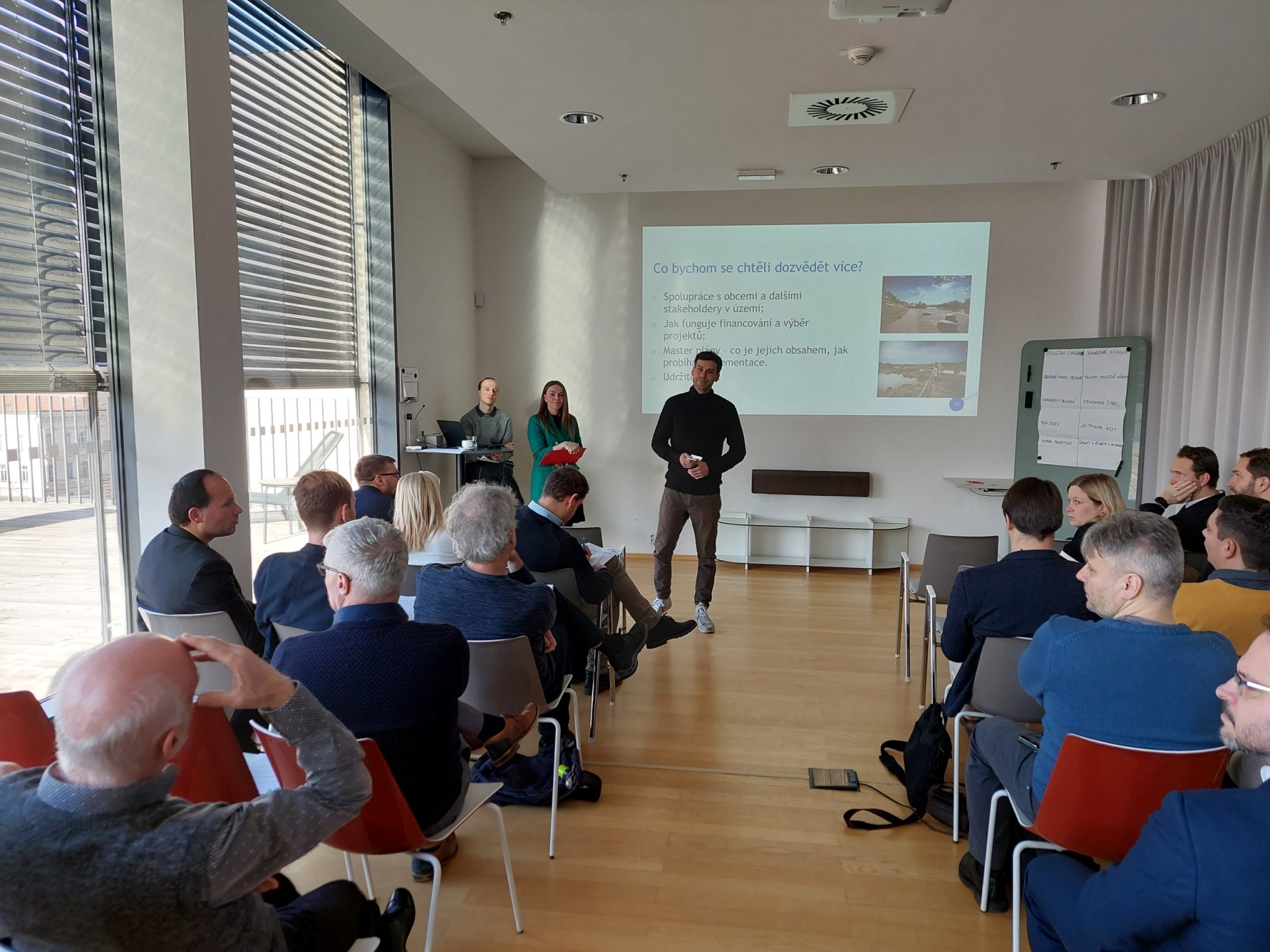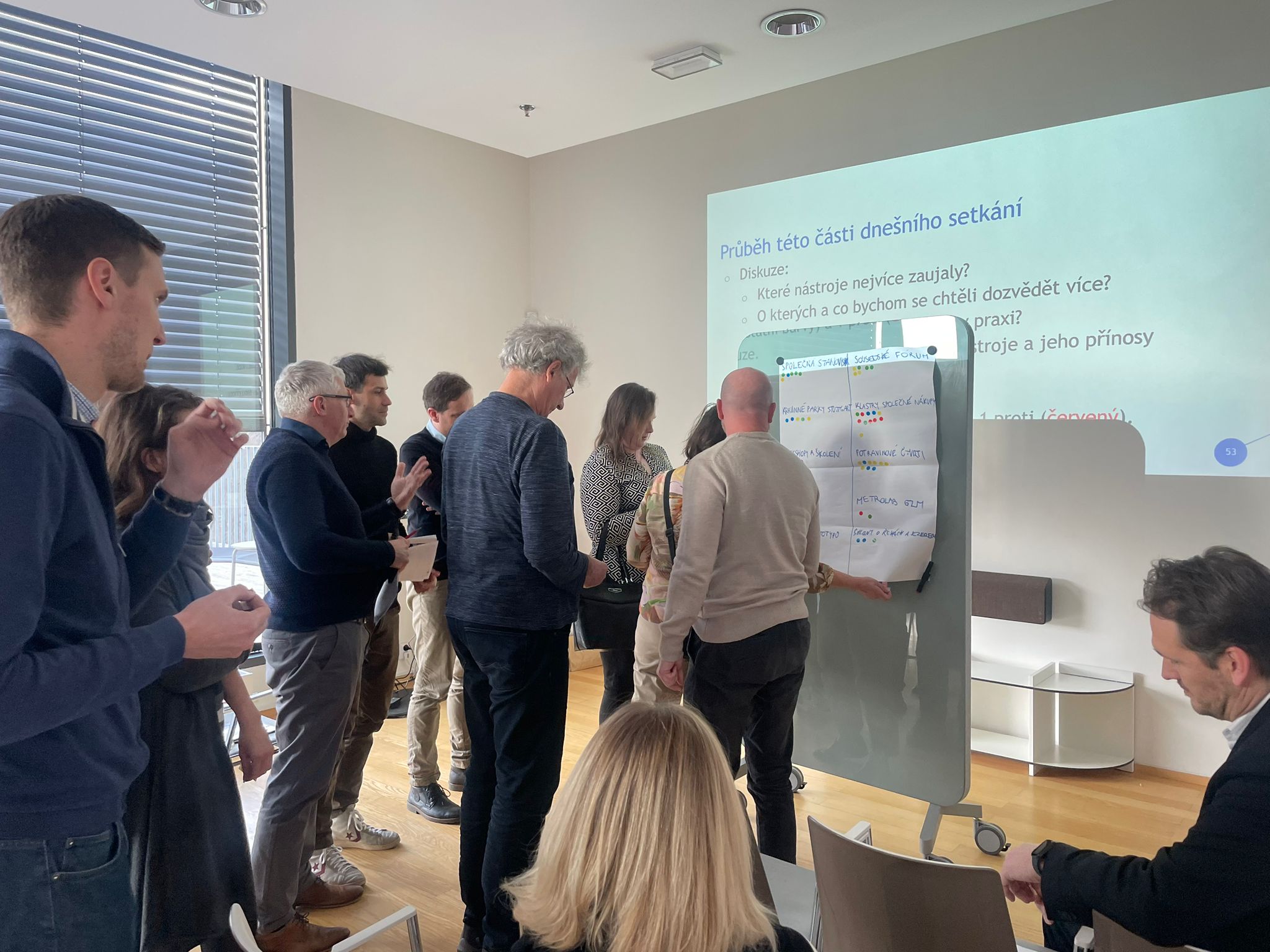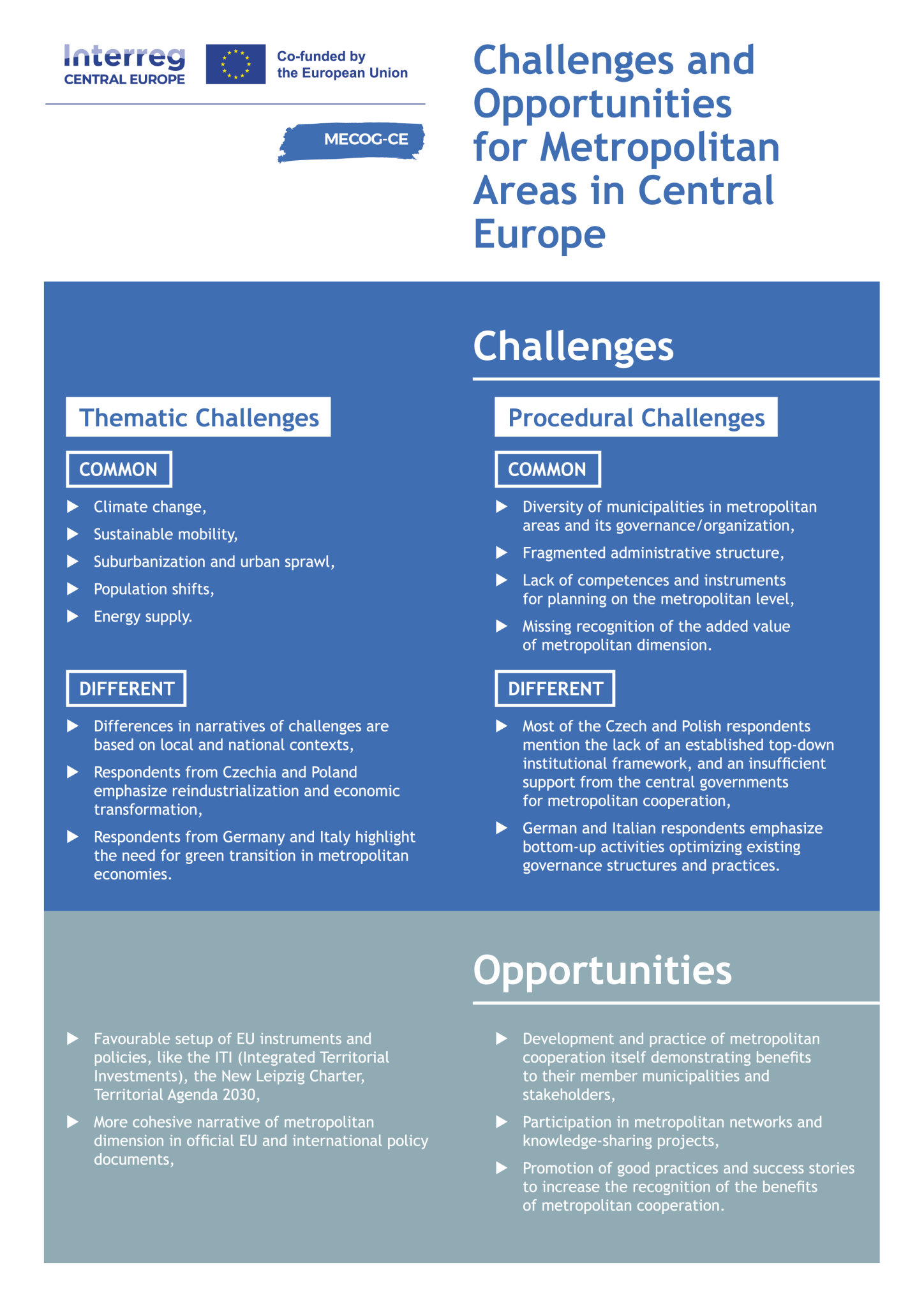Experts in the field of urban and metropolitan planning and development met on 16 January 2024 in Brno to select and prioritise concrete tools and examples of good practice in metropolitan cooperation and governance in Central Europe. These were selected on the basis of analysis within the MECOG-CE project (Strengthening Metropolitan Cooperation and Governance in Central Europe), of which Brno is the lead partner.
The meeting was launched by Martin Příborský, a member of Brno’s City Assembly with responsibility for strategic development, metropolitan cooperation and integrated territorial investments, who emphasized the importance of the involvement of regional and local actors, without their expertise it would not be possible to move the MECOG-CE project and the development of the Brno Metropolitan Area forward.
All 32 participants were introduced to 10 specific thematic and process tools and projects identified by the project partners in their metropolitan areas. The examples of good practice come from many different cities and metropolitan areas, including Stuttgart, Warsaw, Turin, Berlin and the Upper Silesian metropolian area, and perfectly illustrate how cooperation and governance can be strengthened within Central Europe.
The participants of the meeting then held a discussion on the presented tools and projects and they jointly evaluated which tools or projects can be used in BMA in terms of their transferability. After a productive discussion, BMA stakeholders selected and prioritised five tools and projects which they considered most beneficial and which they would like to study and test in the next phases of the project. These selected examples of good practice are:
The joint selection is essential not only for the further running of the project, but also for the strengthening of metropolitan cooperation in BMA.
Next steps
A transnational partner meeting will be held in Stuttgart in February 2024 to select the final five best examples of good practice and tools for strengthening metropolitan cooperation and governance. These examples will be selected on the basis of the results of the selection and prioritisation of projects that took place during Regional Stakeholders meetings in all six partner metropolitan areas. These selected tools and projects will be further studied together in so-called “study clusters” and parts of them will also be tested in partner metropolitan areas. BMA will thus have a great opportunity not only to learn a lot about foreign examples, but also to test them on its own territory. At the same time, it will have the opportunity to share the experience of good practice examples identified in the Brno Metropolitan Area.


Outcomes of the MECOG-CE project so far
All participants were also informed about the project itself, its objectives and achievements so far. Outcomes to date include the Identification of Challenges Specific for Central European Metropolitan Areas, an analytical document summarises not only the current challenges faced by Central European metropolitan areas, but also the opportunities for strengthening the metropolitan dimension and the ambiguous recognition of this dimension in European and international documents. You can read a summary of this analysis in this article or in the form of the leaflet below.
Information about the MECOG-CE project can be found on its separate page here.

The project is co-funded by the European Union funds, specifically the European Regional Development Fund, through the Interreg CENTRAL EUROPE transnational and interregional cooperation programme. More information about this project including publicity can be found here.
Register your e-mail address to receive regular updates from the Brno Metropolitan Area.